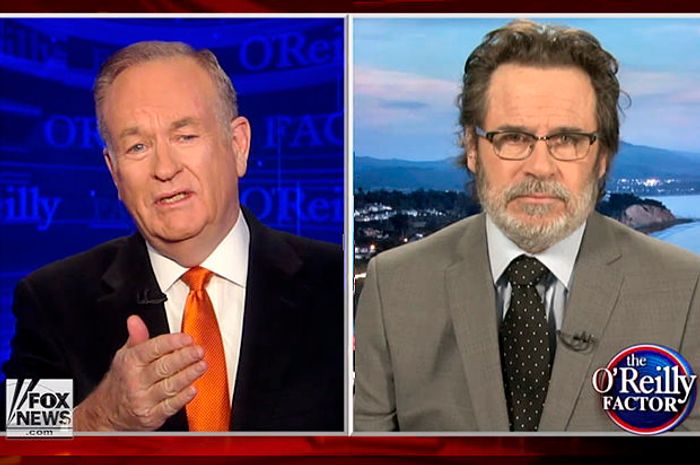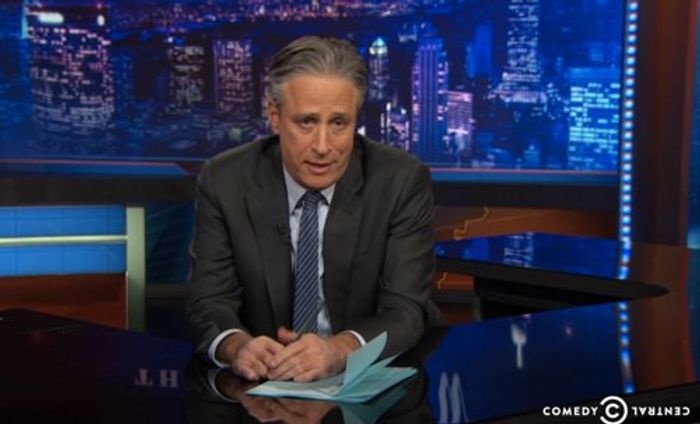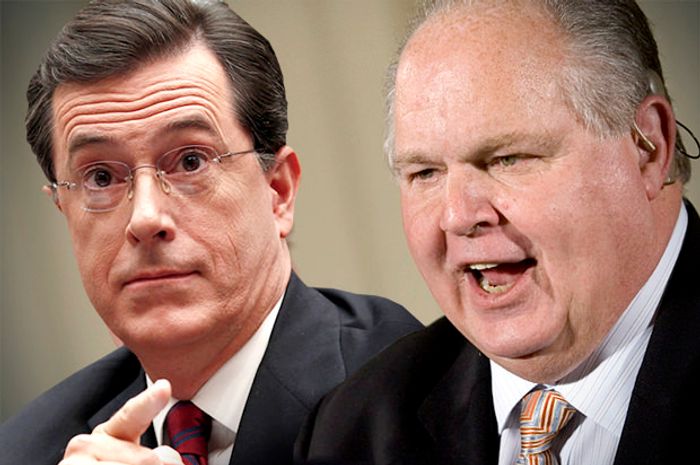Quoted by Michael Moore
I was quoted by Michal Moore in “The Day Clint Eastwood Said He Would “Kill” Me, 10 Years Ago This Week”
Read the post on Facebook
Sophia McClennen and Remy Maisel are interviewed for WPSU's Take Note on *Is Satire Saving our Nation?*
Satirical media have been making headlines recently: Cyberhacking and threats shut down Sony’s satirical film “The Interview,” which is about two men trying to assassinate North Korean leader Kim Jung Un. Then reaction to satire took a deadly turn when gunmen killed 12 at the French magazine Charlie Hebdo.
Penn State professor Sophia McClennen and recent Penn State graduate Remy Maisel co-authored the book, “Is Satire Saving Our Nation?: Mockery and American Politics.”
Listen at Radio WPSU

“American Sniper’s” biggest lie: Clint Eastwood has a delusional Fox News problem
Much has been made recently about the inaccurate representation of Chris Kyle in “American Sniper.” We’ve learned that, despite the fact that the film depicts Kyle as a hero and a martyr, the real American sniper was heartless and cruel. Rather than struggle with moral dilemmas as we see in the film, the actual man had no such hesitation and no such conscience.
Read the rest at Salon
(Photo Credit: Keith Bernstein)

The Anti-Extremist Satire No One Is Talking About
As we hear the ongoing debate of whether we are or aren’t Charlie, there is a whole other world of satire aimed at extremists that no one is mentioning. The irony is that in the realm of anti-extremist satire the images from Charlie Hebdo are some of the tamest out there.
Read the rest at The Huffington Post
(Photo Credit: The Washington Post via Getty Images)

“To categorically dismiss the cartoons is to not understand them in context”
In a piece I wrote shortly after the Paris attacks on Charlie Hebdo, I cautioned that it wouldn’t be long before critics came after the dead satirists. And I was right. Charlie Hebdo has been condemned for being racist, for not being good satire, for being inflammatory, for participating in French Islamophobia, and maybe even for contributing to the actual context of violence that caused a number of them to die.
Read the rest at Salon
Bill O’Reilly, Dennis Miller (Credit: Fox News)

They’ll come for “The Daily Show” next: Why satirists always threaten fundamentalists
Recently we’ve seen a number of signs of the power of satire. First Egyptian satirist Bassem Youssef was forced off the air when the MBC network claimed that he might influence the Egyptian elections. Then Jon Stewart released “Rosewater,” a film about an Iranian journalist imprisoned over a misunderstanding of satire. Then the Chinese government decided to ban puns, claiming that they breach “the law on standard spoken and written Chinese” and “make promoting cultural heritage harder.” Next was the alleged North Korean cyberhacking of Sony Pictures over the satirical film “The Interview,” leading many theater chains to initially decide not to show the movie. But obviously nothing matches the viciousness of the recent massacre at the French satirical magazine Charlie Hebdo, which left at least 10 staff members and two French policemen dead along with a number of others wounded.
Read the rest at Salon
Jon Stewart (Credit: Comedy Central)

I got slimed by Rush: The real story of how Stephen Colbert schooled Limbaugh on U.S. history, patriotism
There seems little doubt that nuance, subtle thinking and critical insight are well beyond the grasp of Rush Limbaugh. So this piece is not directed at him. But the power of his arguments is real and the force they have in shaping public debate can’t be overlooked. So for that reason alone it seems worthwhile to debunk some of the arguments he made when he attacked the piece I wrote for Salon last week.
Read the rest at Salon
Stephen Colbert, Rush Limbaugh (Credit: Reuters/Kevin Lamarque/AP/J. Scott Applewhite/Photo montage by Salon)
Brian O'Connor interviews me for *Footnote* on Colbert's legacy
As Americans of many political stripes lament the end of the hit show “The Colbert Report,” we wondered how Stephen Colbert’s satirical right-wing, hyper-patriotic persona impacted U.S. politics over the course of the show’s ten seasons. What legacy does Colbert leave behind as he exits “The Colbert Report” to take over the “Late Show” from David Letterman?
Read the rest at Footnote